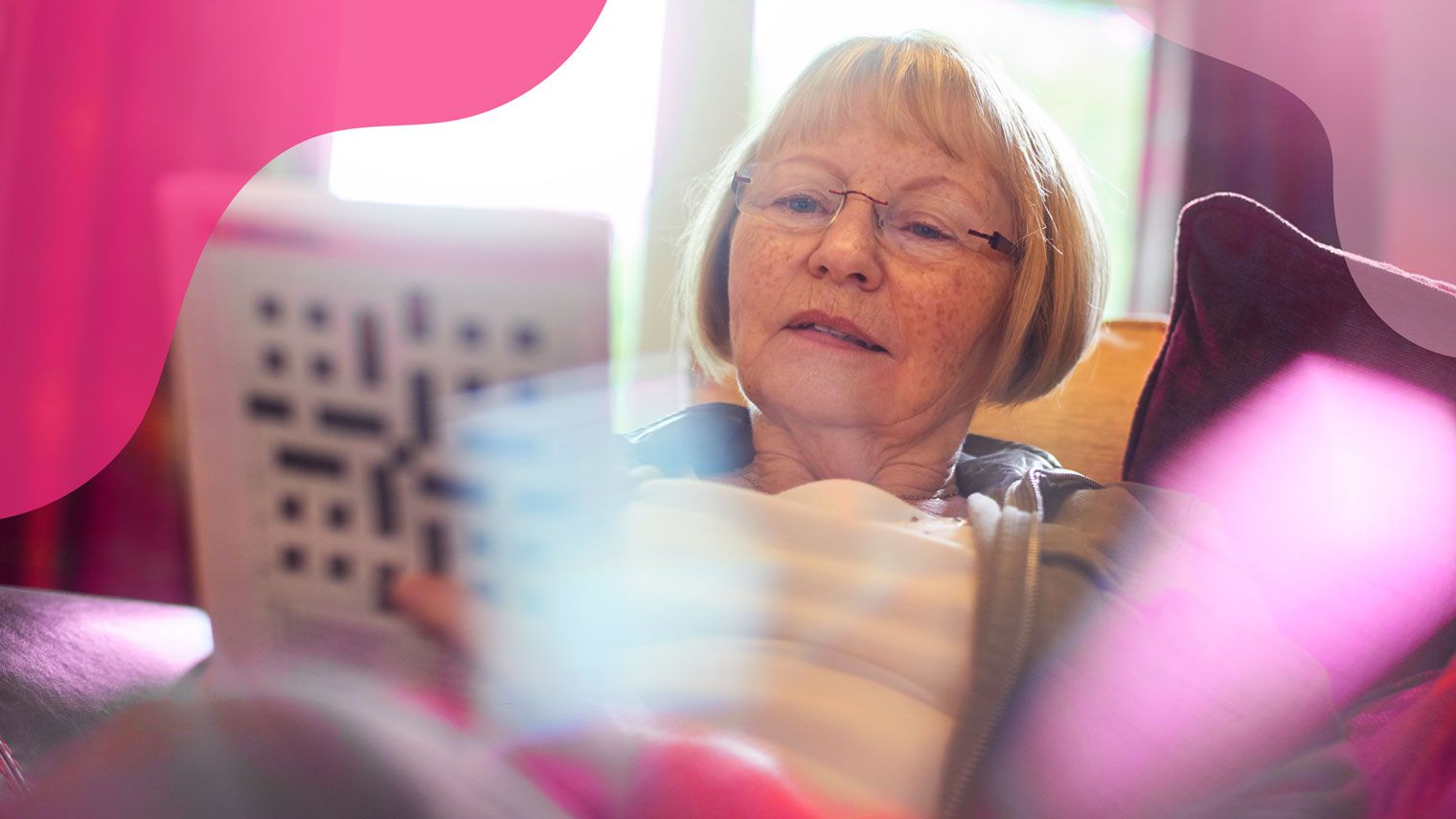Bezzy BC Members Talk Recognizing and Managing Chemo Brain
October 31, 2023
Content created for the Bezzy community and sponsored by our partners. Learn More

Photography by MartinPrescott/Getty Images
If you’ve felt brain fog after chemotherapy, you’re not alone. These tips may help you manage this side effect of cancer treatment.
Navigating chemotherapy treatment can be difficult. It can affect every aspect of your emotional, physical, and psychological well-being. Side effects like brain fog and fatigue can also make it harder to multitask, keep track of your schedule, and remember your to-do list.
If chemo has been part of your breast cancer treatment, you may have experienced chemo brain, which is brain fog associated with chemo.
“You may feel that your thinking has slowed and that your ability to process thoughts or find words takes longer than normal,” said Dr. Julie Scott, oncology certified nurse practitioner. “You may also feel more tired and may be more forgetful than usual.”
Some people have symptoms that disappear after treatment, while others experience chemo brain for years — though you may not have symptoms at all.
According to Scott, brain fog doesn’t just occur with chemotherapy. Similar symptoms can occur with other cancer treatments like radiation and endocrine therapy.


Chemo brain symptoms can vary
Members of the Bezzy BC community understand what chemo brain feels like because they’ve experienced it. Here’s how they describe chemo brain:
I have the word recall issue and brain fog. I know some of my forgetfulness comes from age, but not all of it.
— Scpearson54
While I was in treatment, my chemo brain was out of control. Now, a few years out, I still get random days when I just can’t compute.
— Mariana Alvarez
It’s so frustrating at times. During conversations, I’ve learned to just say, ‘chemo brain,’ and my squad knows what I’m talking about. They say they are the ones ashamed because they have no reason [not to] remember.
— Anonymous
The good news is it’s not as severe years later. But I still have word recall issues, general cognition issues, a short attention span, and an inability to multitask.
— Monica, Bezzy BC Community Guide
Tips for navigating chemo brain
According to Scott, self-care can help you manage chemo brain symptoms. She recommends getting enough sleep, exercising, and keeping your brain active by reading and doing crossword puzzles.
Bezzy BC members also recommend being kind to yourself and nurturing your mind through self-talk. Here are their tips for managing chemo brain:
I write things down. I started playing a new instrument. Learning new tasks helps the brain. Find something new that interests you. This has helped me a lot.
— Dona60, occupational therapist assistant
I began gently ‘talking’ to my brain. Slowly and intentionally, step-by-step, there has been [an] amazing recovery. I’ve since learned about neuroplasticity and the amazing ways the brain can heal and create new pathways. Pink sisters never give up. Be patient. You can heal, too.
— Kimberly Gay MacGregor-Wilcox
I was actually in therapy with a neurological psychologist because of chemo brain. They showed me some tricks and exercises.
— Anonymous
The first and most important thing that helped me on my road to recovery was making detailed lists. I broke down bigger chores, like cleaning the kitchen, by compartmentalizing the different areas I needed to work on, such as counters, floors, fridge, dishes, etc.
— Monica, Bezzy BC Community Guide
The bottom line
If you’ve experienced chemo brain, you’re not alone — whether you just started chemo or finished treatment decades ago.
Practicing self-care by sleeping, exercising, and reading may help. Even if progress feels slow, you’ll likely take strides without noticing since symptoms can be hard to track over time.
“Sometimes, it’s so gradual that people don’t even notice how much improvement they have had until they look back and really think about it,” Scott said.
Keeping a calendar and notepad handy can also be helpful for writing things down and keeping track of your schedule.
No matter where you are in your cancer experience, the Bezzy BC community understands and is here for you in the community forums.
Medically reviewed on October 31, 2023
1 Source


Like the story? React, bookmark, or share below:
Have thoughts or suggestions about this article? Email us at article-feedback@bezzy.com.
About the author